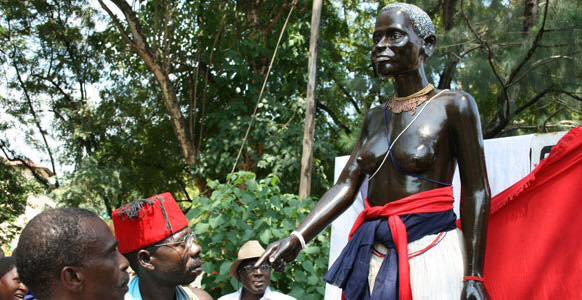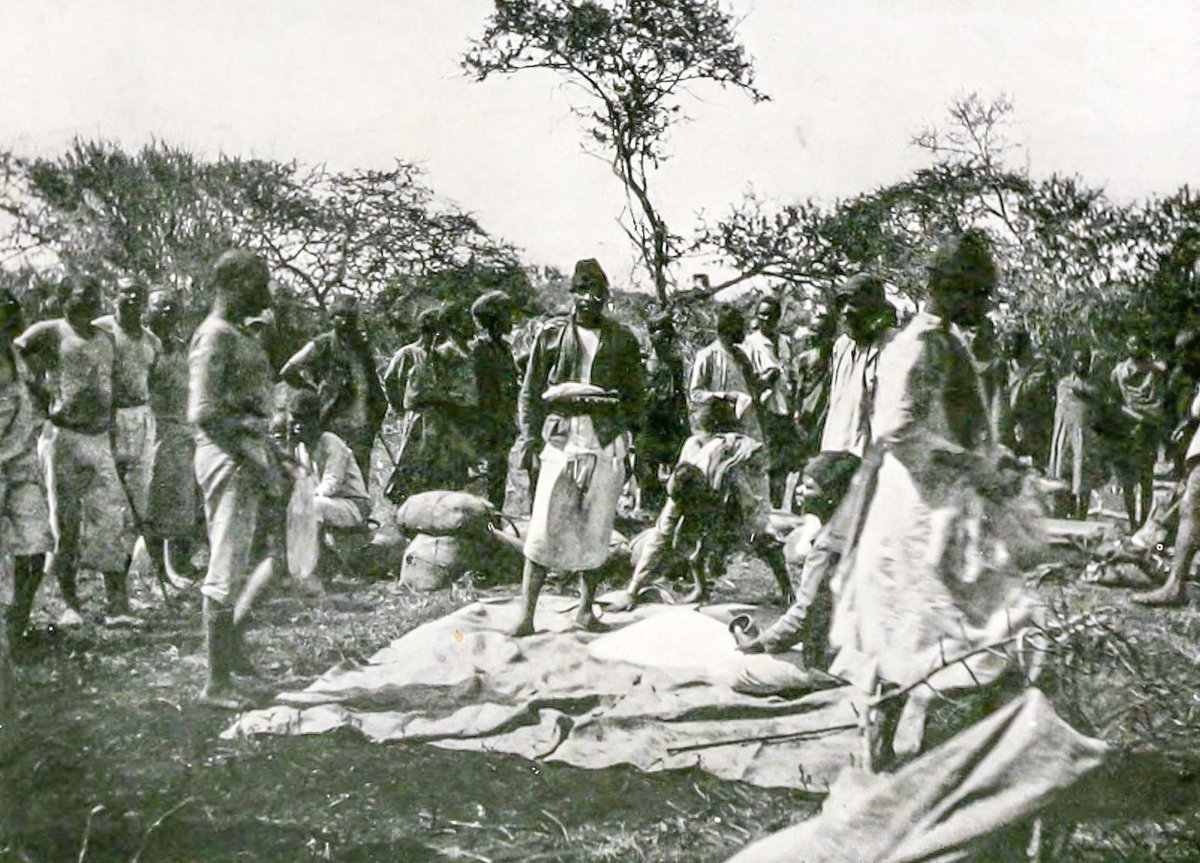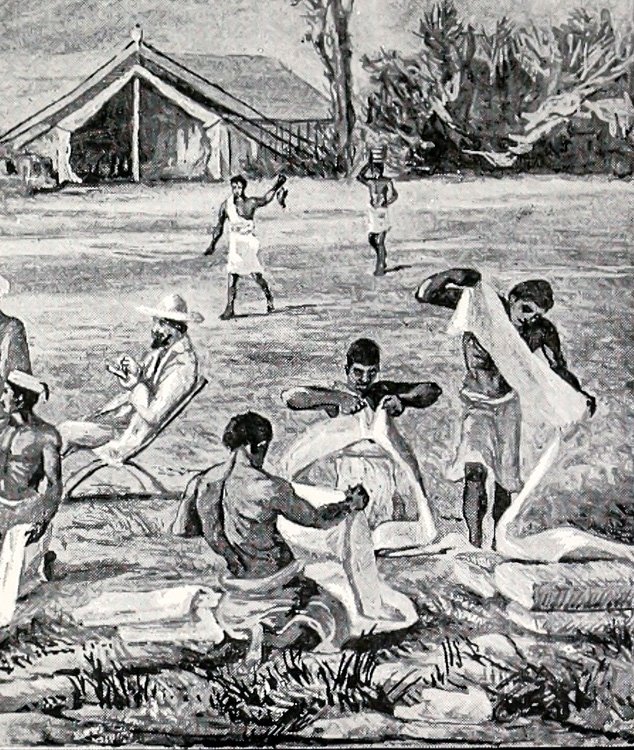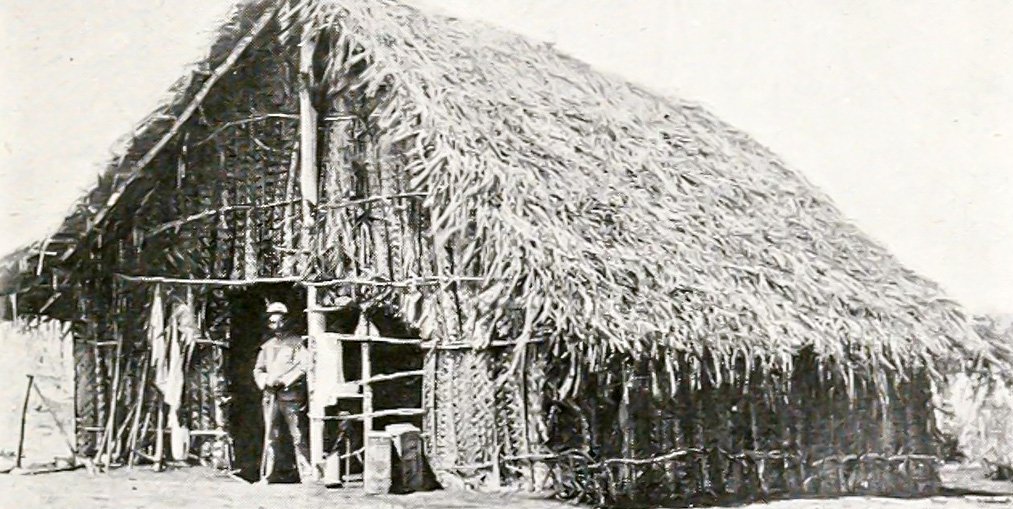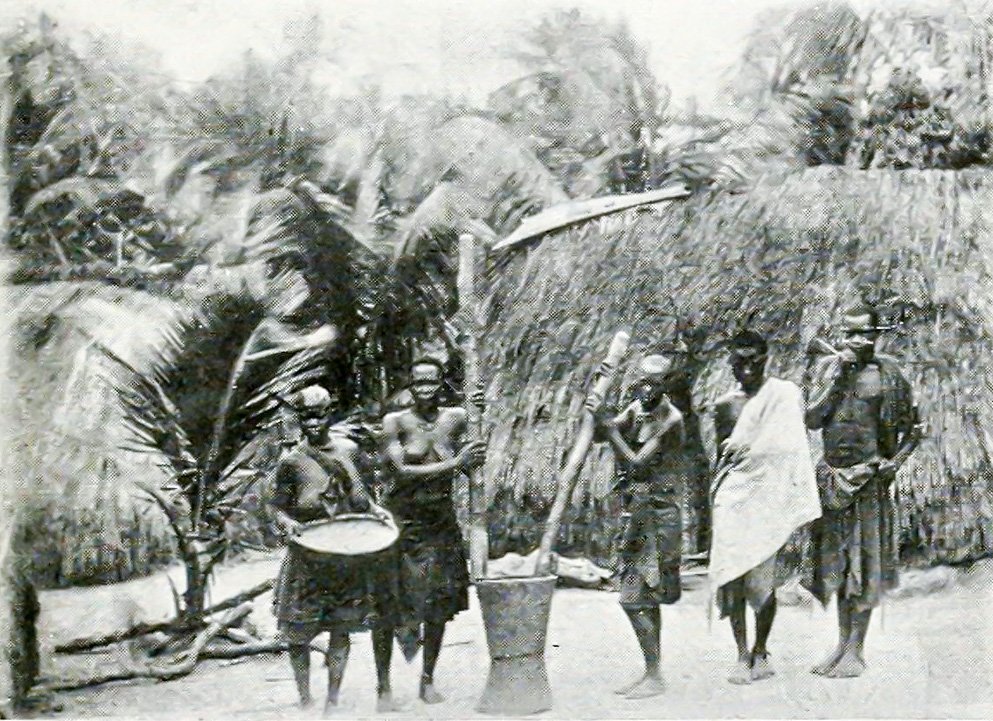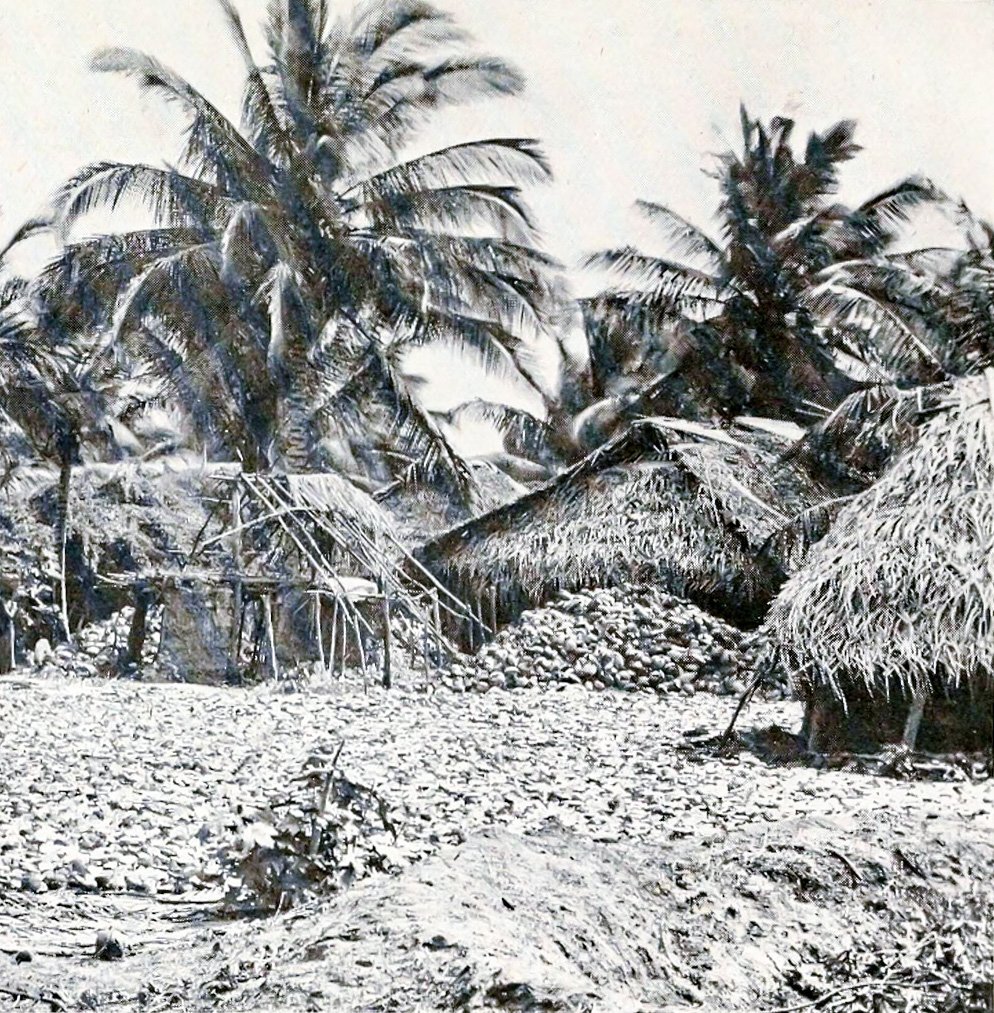2/ It is unimaginable to speak of the history of Kenya& #39;s armed struggle for freedom without talking about Mekatilili& #39;, one of Kenya& #39;s earliest freedom fighter.
3/ Born at Mtsarea wa Tsatsu in Ganze division of Kilifi County around 1850, she was named Minyazi wa Menza. She had four brothers and a sister.
4/ One day Mekatilili accompanied her brothers to a trading centre frequented by Arab-Swahili and Giriama traders. Here, cereals, knives, clothing, ornaments and even ivory were bartered. The exact date of this outing is not known but it is believed to have been in the early...
5/ ...1870s.
6/ On that particular day, a group of Arab slave traders pounced on her brother, Kithi, and took him into captivity, managing to fight off the physical resistance of their captive& #39;s young siblings, led by a wailing and hysterical Mekatilili.
7/ From that day, Mekatilili became suspicious of any non-indigenous visitors. The kidnap incident reminded her of the ominous prophecy of Mepoho, a Giriama seer.
8/ Mepoho, who hailed from Kaloleni, had prophesied about the coming of strangers "with white hair like sisal fibers". These strangers, she further warned, would move about in flying vessels and would lead to the destruction of local traditions.
9/ The prophecy came true with the advent of the Uganda railway in 1896.
10/ When agents of the Imperial British East Africa (IBEA) - regents of the British government, began making forays into giriama villages in search of porters and other labourers, they met stiff resistance from the locals, who were inspired by Mekatilili and Wanje wa...
11/ ...Mwandorikola. The duo belonged to the Kavuta age set that was in power between 1870 and 1906.
12/ Mekatilili established a system of government in which Wanje acted as leader.
13/ However, the Giriama saw in Mekatilili the natural inspiration of a leader. She became more famous after she confronted a white colonial officer at a meeting that was meant to pacify the Giriama, who were up in arms against certain conditions that IBEA imposed on the...
14/ ...indigenous people.
15/ For instance, IBEA barred locals from tapping palm wine, which the Giriama considered one of their delicacies. The Giriama also learnt that the IBEA contemplated putting up rubber and cotton plantations near the Sabaki River.
16/ Matters came to a head when IBEA imposed a hut tax. This coincided with the start of WWI activities in East Africa. The British were also in desperate need of porters to help ferry war gear, food and other logistical cargo to the German East Africa (Tanganyika) frontline.
17/ Accordingly, there were attempts to recruit Giriama youth.
18/ Mekatilili, who was a skillful mobiliser and orator, used the Kifudu dance (performed during funeral rites) to galvanize her community to resist the conscription. She administered an oath to her followers binding them against cooperating with the white man in any way, and...
19/ ...this included not paying for the hut tax.
20/ Early historians record an incident that took place in 1913. British administrators held a meeting with Giriama people, seeking to have them join the British army.
21/ Mekatilili reportedly stormed the same meeting armed with a chicken and chicks. She used the chicken and chicks to demonstrate to the IBEA leaders how she, as a mother, would deal with them if a Giriama son was snatched. The IBEA leaders were led by a certain Arthur Champion
22/ .
23/ She challenged Champion to snatch a chick from the angry mother hen, which furiously pecked at him.
24/ Mekatilili reportedly warned Champion: "if you dare take one of our children, that& #39;s how we will react!”.
25/ Overcome with humiliation, Champion drew a pistol and shot the mother hen dead. Mekatilili reacted with fury, landing surprise blows on him.
26/ At this juncture, members of the IBEA delegation opened fire, indiscriminately killing hordes of villagers present.
27/ Mekatilili and Wanje were promptly rounded up and arrested. They were sent to Kisii near Victoria Nyanza, where they were locked up.
28/ After six months, in January 1914, the two managed to break out of prison and inexplicably trekked all the way to Kilifi, a distance of about 700km.
29/ When the colonialists finally learnt of the jail break, they retaliated by targeting the civilian population. Scores of men, women and children were killed and livestock captured.
31/ At Kaloleni, the battle intensified. Mekatilili& #39;s known sympathizers were rounded up and either incarcerated or killed. Fundo wa Nyama was among the fatalities.
32/ The British waged propaganda, claiming that Mekatilili was a witch.
33/ All this time, she and Wanje were in hiding, but from the shadows they encouraged their tribesmen to resist.
34/ As the WWI war between the British and the Germans in Tanganyika raged, the former were desperate to clamp down on the Giriama rebellion once and for all. They were wary of distractions in their own backyards when they had a more formidable European enemy to counter.
35/ So on 14th October 1914, they tricked the Giriama to take part in a "peace rally".
36/ During the "peace talks", the British demanded that the Giriama pay for resisting British rule. Some historians have stated that the fines amounted to 3,300 goats and 10,000 rupees.
37/ Moreover, the Giriama were asked to not only surrender their rebellion leaders but also move out of the banks of the Sabaki.
38/ Giriama elders outrightly rejected the terms.
39/ In the days that followed, the British retaliated by killing no fewer than 600 locals. Whole villages and food granaries were torched by British officers while Kaya Fungo, which was a sacred Giriama shrine, was bombed and destroyed.
40/ Amidst the resistance, Mekatilili occasionally emerged from hiding to inspire her people, telling them to ignore propaganda that she was a witch. The spirits of the Kaya, she reminded her followers, were fully behind the Wagiriama.
41/ She and Wanje were however recaptured in August 1914 and sent to British Somaliland (Kismayu), where they were jailed.
42/ Despite the capture of the duo, the Giriama sustained guerrilla attacks against the British for weeks.
43/ In 1919, Mekatilili again escaped from captivity in Kismayu. In spite of her age, she trudged her way back to Kilifi.
44/ Perhaps concluding that she had become too old, the colonialists decided to leave her alone.
45/ She died in the 1920s of natural causes and was buried at Bungale Ulaya kwa Jele, where Mekatilili wa Menza cultural festival is held annually.
46/ Mekatilili& #39;s sense of love for her people, her determination and bravery embodies the toiling spirit of many African mothers. This post is a tribute to the heroism of Mekatilili, and applauds mothers in Kenya.

 Read on Twitter
Read on Twitter